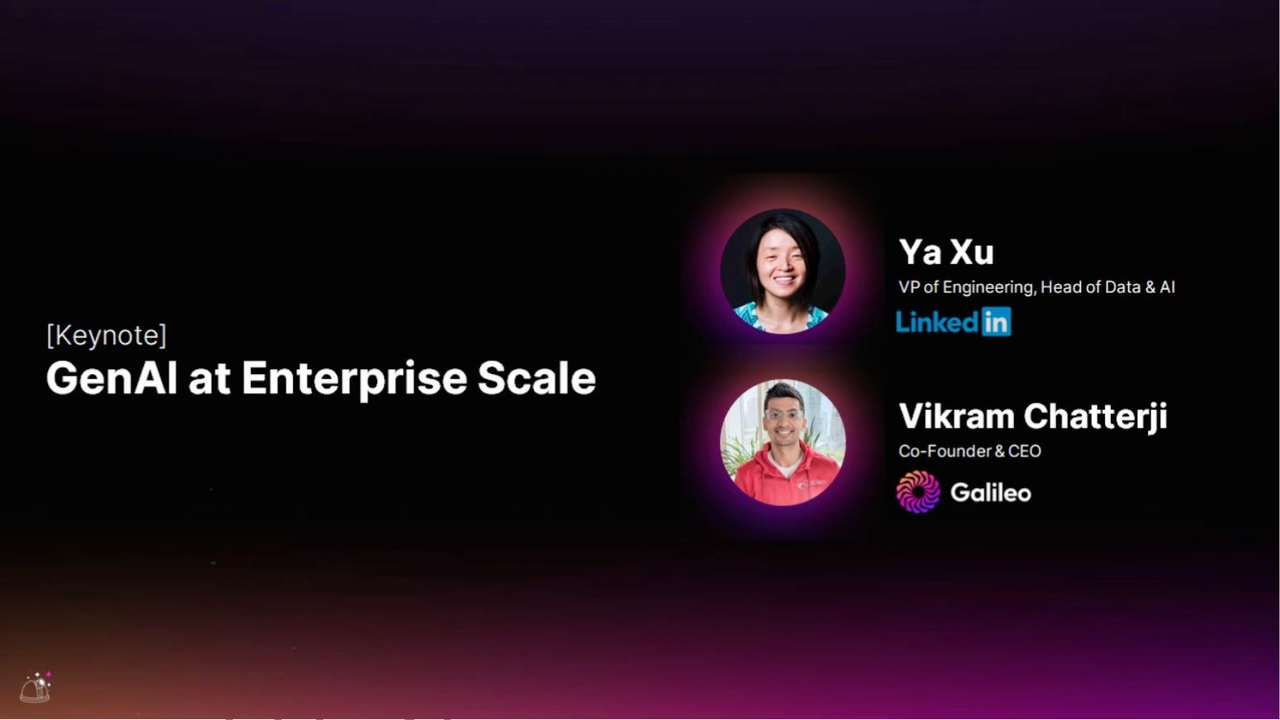HP + Galileo Partner to Accelerate Trustworthy AI
GenAI at Enterprise Scale

Enterprise GenAI poses its own unique set of challenges and requires a disciplined approach for real-world success. Ya Xu, VP of Engineering and Head of Data and AI at LinkedIn, joined us at GenAI Productionize 2024 to deliver our keynote session on the technologies, frameworks, and organizational strategies she uses to scale GenAI at LinkedIn. Read three key takeaways below from her session and watch the entire presentation to unravel GenAI at enterprise scale.
Accessibility Has Made AI Mainstream
Adopting predictive AI demanded deep in-house expertise and vast infrastructure, limiting its application to niche areas and a few successful ventures like Google Search. However, the emergence of open-source frameworks and infrastructure-as-a-service has allowed generative AI far more accessibility and mainstream appeal for both startups and large enterprises. This has moved AI from behind-the-scenes algorithms to front-and-center applications that directly interact with users in profound ways. AI’s societal impact is just beginning to be felt as it grows from a specialized field to a widely recognized technology adopted by all sectors.
Three-Phase Framework for Enterprise Adoption
The misconception that a single AI model can meet all enterprise application needs will doom AI teams before they begin. In fact, model implementation is only the beginning of the enterprise AI adoption journey. LinkedIn uses a three-phase approach for its GenAI initiatives: exploration, experimentation, and productionization. During exploration, employees from across the business must be stakeholders for product or organizational enhancements, following a bottoms-up ideation process. From there, experimentation should focus on the most viable applications to enable rapid development and deployment. Finally, productionization requires holistically integrating various components like orchestration frameworks, vector stores, responsible AI layers, and so much more to ensure the AI system's effectiveness and ethical compliance. In the end, real-world deployment of enterprise GenAI will depend on training on or retrieving organizational data while balancing latency, accuracy and cost and reaching widespread organizational buy-in.
2024 is the Year of Model Proliferation
As startups begin to use GenAI in innovative ways, 2024 will see a wave of new consumer applications beyond current chatbots and workflow automation. Leveraging a mix of large, general-purpose foundation models and smaller, specialized models will become standard practice and help accelerate product development. Model selection will become a key strategic decision as a way to balance cost, scalability, and latency.
Watch the entire session now to hear more on Ya’s experience deploying GenAI at LinkedIn:

Subscribe to Newsletter
Working with Natural Language Processing?
Read about Galileo’s NLP Studio
